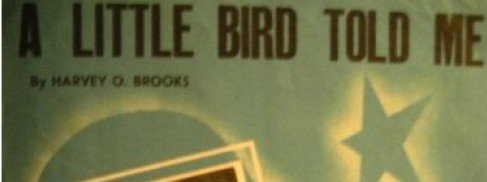
This is the latest article in the popular Blues Law series by lawyer, author, and radio personality Brian Lukasavitz, “The Blues Attorney”, that explores interesting and landmark law cases related to the blues genre.
As music fans, we appreciate that “cover versions” are a given in blues, R&B and rock n roll. Whether it was the earliest rock, with Elvis Presley re-recording Arthur “Big Boy” Crudup’s blues classic “That’s Alright, Mama”, Bill Haley’s version of Big Joe Turner’s “Shake, Rattle and Roll”, Pat Boone’s “safe” version of Little Richard’s “Tutti Frutti”, or the endless covers of the blues classics, by every band trying to recreate the magic of Willie Dixon’s compositions. So, what is the legal basis for “cover versions”?
To avoid a long article about the legal intricacies of copyright and licensing law, it was common in the early days of the recording industry for blues or R&B artists with original material to license/assign (rent/sell) the rights of their song to a record label. Under State common-law copyright protection and the U.S. Copyright Act of 1909 (once registered), an author of a song has the right to first publishing of their creative work.
Once a song is published by the author or licensed for publishing to a label, any other recording artist or label may record a version and release it in competition with the original, so long as they pay a licensing fee (known as a “mechanical license”). This phenomenon occurred often. The most common scenario in the late 1940’s and 1950’s, was for a blues or R&B artist to record and release a recording with a small independent label, only to have a larger label release a more polished version with considerably more marketing. The result being that the original disappeared into obscurity.
The “Little Bird” story begins in 1947, when Harvey O. Brooks, a successful African-American songwriter and pianist wrote and published the song “A Little Bird Told Me”. In 1948, Albert Patrick and his company, Supreme Record Company, a small independent jazz and blues record label, licensed the song for recording and release. Supreme Record Company recording artist, Paula Watson recorded the song, and it immediately became a hit, reaching #2 on the “Race Records” charts and #6 on the popular charts. Decca records, one of the largest international record companies at the time, seized on the opportunity to release a new “pop” version. Compared to the Paula Watson version, accompanied by guitarist Tiny Webb, the Decca version was far more polished, featuring Caucasian singer Evelyn Knight, accompanied by bassist Walter Page, with vocal and handclapping by Johnny Parker, and background vocals by the Star-dusters. The arrangement and vocal style of the Decca recording were clearly an imitation of the Supreme recording, which Supreme Records argued in the 1950 lawsuit, entitled them to damages compensation from Decca records.
After addressing minor issues within the claim, the United States District Court of the Southern District of California, turned to the primary issue of whether or not there could be an ownership interest in the style or arrangement of a particular song by an individual or entity other than the author. After analyzing several cases, it becomes clear that a particular style of arrangement doesn’t, by itself, create an ownership interest in the eyes of the court. The court then needs to determine whether or not there is enough similarity to create confusion as to warrant a claim for unfair competition. The court notes that to create confusion to the extent that it rises to unfair competition, the public must be unable to easily distinguish between the two versions and its origin. In this case, both recordings were clearly labeled as to which company produced each recording, eliminating the visual confusion. The court, doing a basic comparison of the two recordings, notes that both recordings are of the same song, making similarities inevitable, such as melody and structure. The court then analyzes the differences in recordings, such as the intonation, orchestration, varied harmonization and general expression. The court concludes that a trained or untrained listener is likely to easily be able to distinguish between the Supreme Records and the Decca Records recordings. Finding for Decca records, the Court paves the way for what would become an endless number of cover version recordings of blues and R&B tunes for the pop music consumers.
On a site note, by the time the case was decided, Supreme Records having lost other lawsuits, was no longer in business, and Decca had bought out Paula Watson’s contract from Supreme Records and signed her to their label.


